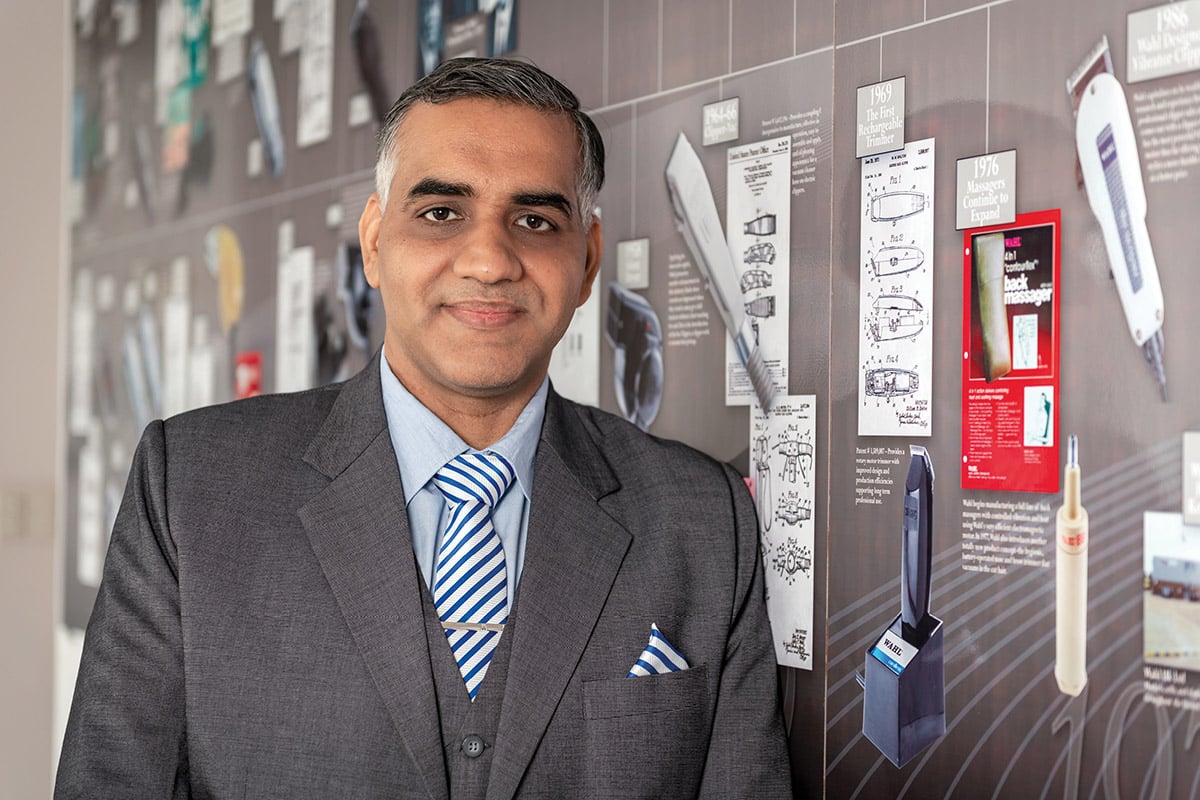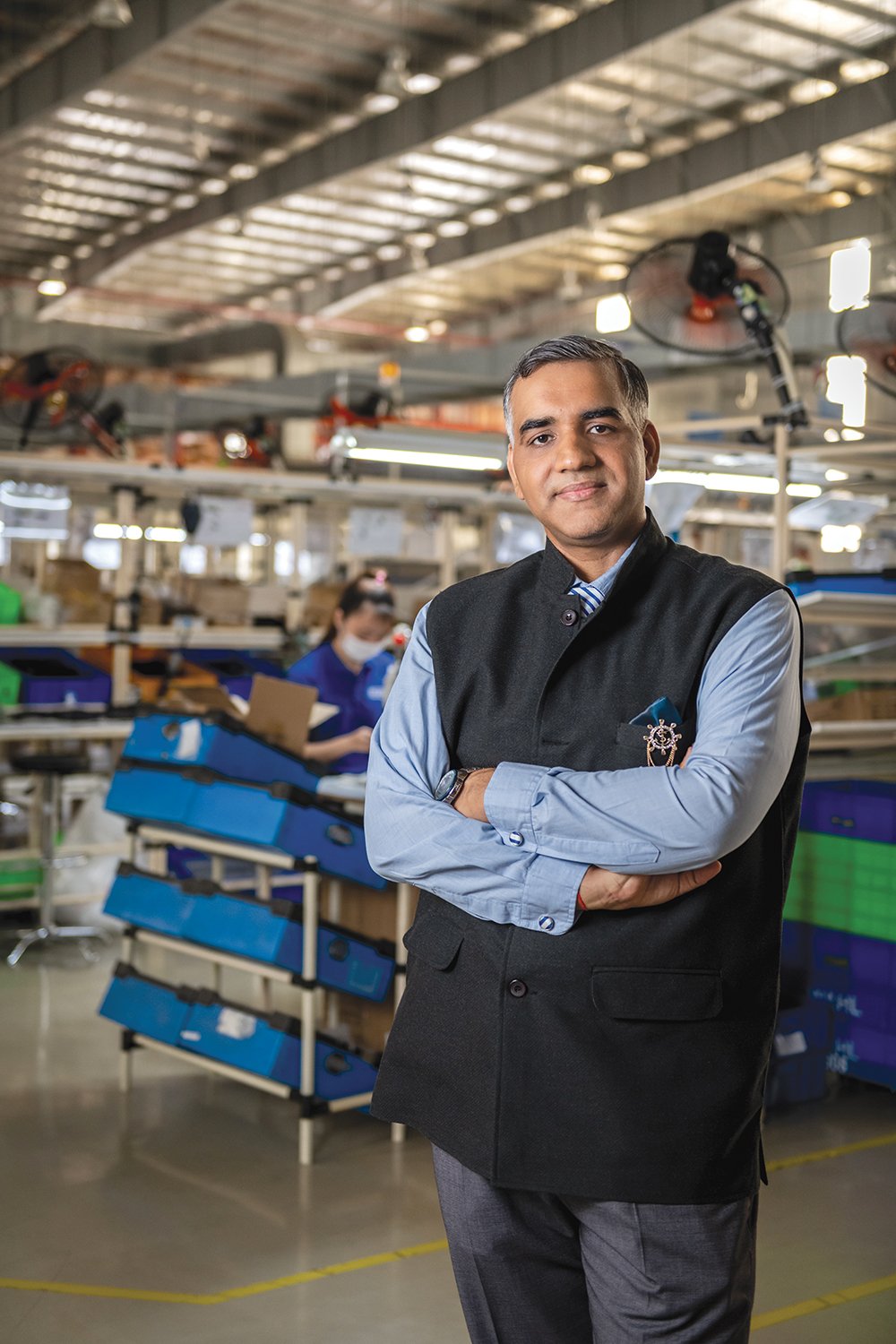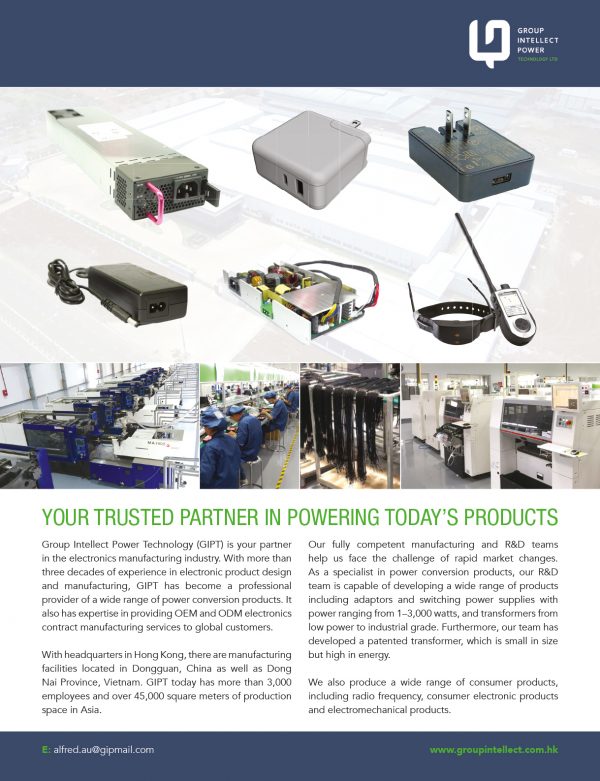Pankaj Sharma isn’t afraid of a challenge or two – rather, he embraces them. “I’m always looking for problems,” he tells The CEO Magazine. “I’m not happy if I go home in the evening and I haven’t improved anything during the day. They don’t all have to be major or breakthroughs either – even small improvements are important.”

When Pankaj first joined Wahl Vietnam in 2019, he brought with him a wealth of knowledge and experience in manufacturing across multiple industries in Asia as well as Europe. “My experience has always been in and around the production shop floor,” he shares.
“I started as a production executive about 17 years ago in India and, since then, I’ve worked in all the manufacturing departments. It’s been a great opportunity to be able to work in almost all the functions relating to a factory.”
Since its inception in 1919 in America, Wahl Clipper has established itself as the undeniable industry leader around the world. However, Pankaj admits that while there are many advantages to being a company that has more than a century of learnings under its belt, there is also a need to focus on innovation in order to guarantee that it doesn’t remain stuck in the past.
“Being 101 years old means that consumers can trust our products, and our global footprint enables the diversity and flexibility of our product portfolio,” he says.
“But there are also some systems that need to be continuously evolving, following consumer and market trends. When we talk about innovation, we always come back to our mission to preserve what is great about us already, while driving the change that is needed to help us achieve our full potential. We’re always innovating, standardising and improving.”
Pankaj also emphasises the importance of mutually beneficial and collaborative partnerships with its suppliers, explaining that constructive communication and the acknowledgement of a common goal ensures that the customer as well as every company along the supply chain receive the best possible outcome.
“We need to be working together with suppliers to improve the quality of incoming products, components and services,” he explains. “Companies in most countries have manufacturing set-ups here in Vietnam now, which means that the suppliers also have an opportunity to suggest better ways for us to do things. We need to maintain an openness between us and our suppliers so that we can exchange ideas and find the best ones. Ultimately, it’s our consumer who has to win.”

As part of an industry that is constantly in flux – evolving and developing at a rapid rate – Pankaj believes that flexibility is one of the most useful traits that an employee can develop. “In the environment of manufacturing, everything changes so fast,” he says.
“The previous methodologies and philosophies become outdated very quickly, so whatever we learn, we learn for today, because in a few years it will need to be unlearned and relearned as everything is updated. I think one of the biggest recipes of success is the ability to unlearn and relearn.
I started in automotive, moved to glass, then steel and then electrical water heaters. Now I’m in clippers and trimmers. You need the ability to go into a new industry and start from zero.
“It’s also about adapting, because having lived and worked in different countries, you realise that people are different, cultures are different and mindsets are different. A solution that worked in Italy probably can’t be applied to Vietnam – it needs to be customised and understood.”
I think one of the biggest recipes of success is the ability to unlearn and relearn.
Pankaj is also a firm believer in the power of supporting employees and ensuring they’re set up to succeed within the company. “I am really passionate about developing people,” he reveals.
“It’s a target for me, and it’s a target for all of my subordinates, that when we go to work, our single goal is that all our employees – wherever they are – should be one level up in one year, in terms of skills, knowledge and confidence of application. That’s a driver for us.”
At the end of the day, Pankaj is a leader who prioritises a people-first, hands-on approach that heralds a transparent dialogue between employee and employer – a mentality that is supported wholeheartedly by Wahl Clipper as a corporation. “Leadership cannot be driven from the boardroom,” Pankaj concludes.
“We need to be present there with the people, making sure that we’re communicating with them in the right way. Until you can drive connection and engagement, you’re just working on a surface level. We have a responsibility to make our vision visible to all staff – transparency is a real strength in our company culture, and ultimately that builds trust within the teams.”
Proudly supported by:



